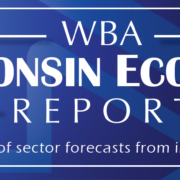Recession or No, Wisconsin Tech Sectors Can Move Ahead in 2023
 Wisconsin Technology Council
Wisconsin Technology Council
By Tom Still, WTC President
Call it the “Great Reset.” After years of predictably robust growth, technology stocks rebooted in 2022 and disrupted public markets all the way down. The question is whether technology stocks — specifically, Big Tech — will climb back in 2023.
The answer is “probably,” but not right away. Both the Nasdaq-100 and the S&P 500 are tech-heavy at the top, and 2022’s major value rundowns took place as the tech industry came to grips with too much growth, too fast. Much of that pain may be past. Moreover, tech stocks historically do well in the recovery phase of a recession rather than leading up to one.
The Wisconsin economy is increasingly intertwined with what’s happening in tech markets. Companies such as Microsoft, Amazon, Google, and Tesla all have a presence in the state in one form or another, especially with the advent of remote work. That neighbor who you thought was a stay-at-home mom may well be a software coder.
Whether it brings a full-fledged recession or an economic course correction, the year ahead is a time to seize opportunities to make Wisconsin even more open to tech-based businesses and workers. Some examples:
- Wisconsin should take the next step in seeding the clouds for a private-public “fund of funds.” Out-of-state venture capitalists are increasingly finding solid deals in Wisconsin; earlier state pump-priming is working; the research base is here; and a huge state budget reserve should create room for a state investment that levers private dollars. Out-of-state investors will continue to be attracted by strong deals, but also by the state’s willingness to show confidence in its own startup expertise.
- Wisconsin is positioned to take advantage of changes in energy and other technologies that can make the world more resilient in the face of climate change. Innovation in solar and wind energy will continue — so long as the grid keeps up with the demand. Storage technologies are a sweet spot; nuclear fission and fusion may help in the long run; some industries see a future in hydrogen energy; and the state is a center for freshwater technology innovation. Can migrating “climate refugees” to fill workforce holes be too far off?
- With better incentives, the state could see an influx of industrial research, data centers (which use a lot of water, by the way), and even video game development. The Columbus, Ohio, region won the Intel semiconductor production fight, but there may be more chip-making chances to come.
- There are myriad ways to mess things up, of course. Beating up the healthcare industry over costs alone is a bad strategy in an era when people move for jobs and lifestyle, which includes high-quality health care. Not recognizing the economic value of higher education is a similar mistake. If there’s one thing about the Minnesota economy that makes it more attractive to site selectors, it’s the significantly higher percentage of people with post-high school degrees. Wisconsin also has yet to adopt a plan for how to place more electric vehicle charging stations. It’s currently 43rd out of 50, according to Governing magazine. Finally, don’t scrimp on the state’s research and development future by making it too hard to build academic science and engineering buildings. When Wisconsin delays, its competitors forge ahead.
The Wisconsin Technology Council is the independent, non-partisan science and technology advisor to the Governor and the Legislature.






